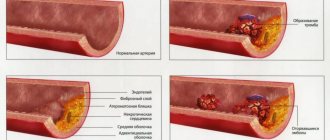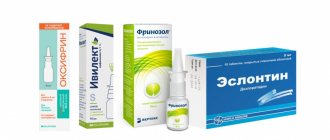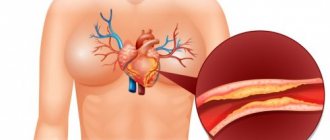Why does swelling occur?
To choose a truly effective remedy for puffy eyes, you first need to find out what causes this phenomenon.
The skin under and around the eyes is very thin and sensitive. It needs constant hydration, quickly dries out under the influence of external factors, easily loses its tone and becomes wrinkled prematurely due to insufficient nutrition. But under the thin skin there is loose fatty tissue. It has high hygroscopic properties, that is, it intensively absorbs moisture and retains it. If, under the influence of any factors, the balance of fluid in the body is disturbed, tissues of a similar structure are immediately filled with moisture. Visually, this manifests itself as swelling of the upper and lower eyelids.
Usually a person himself can easily determine the cause of swollen eyes: for example, a sleepless night or the abuse of liquid and salty foods before bedtime
Factors that provoke the formation of bags under the eyes can be divided into two large categories: pathological and non-pathological. Non-pathological ones include:
- Excessive consumption of salt and salty foods, especially before bed.
- Abuse of alcoholic beverages - alcohol can initially act as a diuretic, but then, on the contrary, it absorbs and retains fluid in the tissues.
- Eye strain during any work, even, at first glance, imperceptible, chronic fatigue.
- Reaction to aggressive external stimuli - polluted, smoky air, chemical fumes, ultraviolet radiation, wind, chlorinated or sea water, etc.
- Prolonged crying.
The main pathological provoking factors are as follows:
What causes dark circles under the eyes?
- Allergic reaction to food, medications; external irritants, dust, plant pollen, animal hair, etc.
- Any inflammatory processes of the organs of vision.
- Congenital abnormalities in the development of eye structures, in particular the upper and lower eyelids.
- Lymph circulation disorders.
- Diseases of internal organs and systems that can affect the circulation of fluid in the body and its elimination.
- Oncological pathologies.
- Injuries to the organs of vision.
If swelling occurs only occasionally and is caused by non-pathological causes, then serious pharmaceutical decongestants are not needed. It is enough to adjust your daily routine and diet, give up bad habits if possible - and the swelling will go away on its own. Gentle diuretic folk remedies for swelling under the eyes will help speed up the process.
You shouldn’t immediately run to the pharmacy for diuretics; first, you can try to cope with the problem using folk remedies at hand - they are more gentle and safe
If the swelling on the face takes on a permanent, chronic nature, accompanied by swelling in the arms and legs, you will need a more radical remedy for swelling - tablets, drops or special herbs with a pronounced diuretic effect
Which ones only a doctor can tell you after a comprehensive examination - after all, when treating one problem, it is important not to harm other organs and not to add new ones
Why do both legs swell?
If by the end of the day both lower limbs are swollen, it means that excess fluid is present throughout the body. Most often this condition is caused by:
- heat;
- excessive fluid intake;
- obesity;
- uncomfortable shoes (tight, high heels, completely flat soles);
- flat feet;
- unhealthy diet (lots of salty and spicy foods in the diet);
- standing on your feet for a long time or in an uncomfortable position.
Fluid stagnation in these cases is caused by improper load distribution. None of the above indicates a threat to life, and the swelling goes away in a day or two. For some, it is enough to take off their shoes and relax, while others resort to folk remedies to relieve discomfort. But symmetrically swollen legs can also indicate more serious diseases that require urgent treatment.
What diuretic drugs for edema are considered harmless?
Pharmacies offer a huge selection of various diuretic drugs. Diuretics are available without a prescription and a person can choose the remedy themselves. One of the main criteria when choosing a medicine is its safety.
Most modern diuretics cause a decrease in potassium concentration in the blood. With hypokalemia, the metabolism of carbohydrates, proteins, water-electrolyte balance, and acid-base balance are disrupted. Very soon this leads to dystrophic changes in the heart muscle and intestinal smooth muscles. This prospect does not appeal to anyone, which is why preference is increasingly being given to diuretics of natural origin.
Diuretics of plant origin do not have an aggressive effect on the body and have virtually no side effects. But they also have disadvantages. For facial swelling, harmless, natural-based diuretics may not have a quick effect.
Popular herbal diuretics:
- "Canephron" is a combined diuretic of natural origin, which also has antispasmodic, antimicrobial and anti-inflammatory effects. The drug is approved for use from one year of age.
- “Phytolysin” is a powerful diuretic based on the squeeze of goldenrod and horsetail herbs. The drug also has nephrolitholytic and antispasmodic properties. The diuretic is contraindicated in pregnant women and persons under 18 years of age.
Methods of therapy with diuretics
The diuretic properties of mercury have been known for a long time, but the use of drugs based on it is already prohibited, as they cause severe side effects.
There is the concept of synthetic and herbal diuretics. When using the latter, there are practically no side symptoms; they can be taken in long courses. But it is worth noting that the effectiveness of treatment with natural diuretics is much lower than when using synthetic ones.
Synthetic diuretics help cope with the problem within a few hours after administration; they also help stabilize blood pressure. Their action is based on the removal of excess fluid through urine, while the level of absorbed salts is significantly reduced.
Among synthetic diuretics, the following groups should be distinguished:
Thiazide - they stop the process of sodium accumulation in the body and remove it with urine. They have a vasodilating effect, the course of administration is from 3 months.
As a rule, this group of drugs is prescribed for edema caused by disturbances in the functioning of the cardiovascular system.
These include:
- Hydrochlorothiazide;
- Enduron;
- Saluron;
- Metolazone et al.
Loop - their main action occurs in a place in the kidney called the loop of Henle.
This group includes drugs for emergency use (for example, for swelling of the lungs or other internal organs). They have strong side effects, so the duration of their use is short.
Popular means include:
- Furosemide;
- Britomar;
- Ethacrynic acid and others.
Potassium-sparing - these drugs help retain potassium in the body, unlike other groups of diuretics. The main drugs include:
- Amiloride;
- Triamterene;
- Spironolactone.
Natural diuretics include medicinal plants (calendula, lemon balm, linden, St. John's wort, sage, oregano and others), fresh vegetables and fruits (watermelon, beets, etc.). They are used in the form of teas (pharmacy diuretics), infusions, decoction or raw form (vegetables and fruits).
It is worth noting that this group of drugs helps to cope with problems that are caused by an excess of fluid in the body, and not by a serious illness.
Edema in general
As mentioned above, localization depends on the reason for which they are caused. Fluid accumulation may appear on the face, limbs, eyelids or internal organs.
If the swelling is not caused by a serious illness, then it will be enough to take a diuretic tea or a decoction of medicinal plants and by the evening you can forget about it.
If the cause is disturbances in the functioning of the kidneys, cardiovascular system, or hormonal imbalance, then treatment is primarily aimed at eliminating them.
In this case, synthetic diuretics, which are selected by the doctor individually for each patient, will help relieve swelling.
Swelling of the legs
These types of swelling can be caused by uncomfortable shoes, so first of all you will need to give them up.
To treat swelling of the legs, the following folk diuretics are used:
- a mixture of castor oil, apple cider vinegar and 1 chicken yolk. It is applied to swollen lower limbs, after which warm socks or tights are put on;
- decoctions of elderberry or other medicinal plants.
If swelling is caused by varicose veins, then medications are used in combination with diuretics to eliminate the underlying disease.
Facial swelling
For treatment use:
- Decoctions of rose hips, bear ears, anise and other medicinal plants. They are taken before meals, a few tablespoons. It is worth considering the fact that these decoctions and infusions strongly wash calcium from the body, so there is no need to abuse them.
- Masks based on sour cream and grated potatoes, which are applied to the face for 10-15 minutes and then washed off thoroughly.
- A decoction of sage is used in the form of lotions. They are applied warm for 10-15 minutes.
- Cucumber masks help not only quickly relieve swelling, but also improve the condition of the skin.
If a woman experiences slight morning swelling on her face, washing with cold water or using pieces of ice will help (they can be based on decoctions of medicinal plants).
If your eyes are swollen
Puffiness under the eyes very often appears due to extreme fatigue. For treatment, you can use special gels or creams that are sold in pharmacies. Among the folk remedies are:
- masks made from cucumber or potatoes, for this you need to place small pieces of vegetables on the eyelid area and hold for 10-15 minutes;
- decoctions of chamomile or parsley root are used in the form of lotions for 15-20 minutes.
When general swelling indicates danger to life
Sometimes swelling of the lower extremities is a symptom of a general imbalance in the body's hydrobalance. In the case of heart failure, the body's main muscle cannot cope with pumping blood. The fluid in the body is distributed unevenly, and too much accumulates at the bottom. If the patient stands or sits in one position for a long time, his feet and legs swell.
Kidney failure can also lead to swelling. It appears not only on the legs, but also on the arms, face (mainly under the eyes), and abdominal wall.
If cardiac edema develops gradually (over weeks), then renal edema develops very quickly. With cardiac diseases, the skin becomes colder, with kidney diseases it maintains a normal temperature.
Fluid retention can also be caused by lymphedema, which is damage to the lymphatic vessels. The swelling in this case is dense; after pressing on the skin, there is no indentation.
Classification of diuretics
Modern pharmacology involves the identification of 5 main classes of diuretics. These include:
- changing sodium transport in the renal tubules;
- affecting the entire length of the renal tubules;
- changing the volume of blood flow in the kidneys (so-called xanthines);
- herbal preparations (that is, folk remedies beloved by many);
- combination drugs.
Changes in sodium transport in the renal tubules
These drugs are divided into: aldosterone (a certain hormone) antagonists and sodium ion channel blockers.
A representative of the first subgroup, Spironolactone, better known as “Veroshpiron,” can be used during the day; to achieve the effect, several days of continuous use are required, only then will an increase in the daily volume of urine become noticeable. Quite safe for chronic kidney and heart diseases.
Triamterene (a representative of the second subgroup) is indicated for use in people with chronic cardiac pathology, since these tablets do not have a negative effect on the exchange of the main cardiac microelements magnesium and potassium.
Thiazide diuretics
Thiazides themselves (Hypothiazide, for example) have a direct effect on kidney tissue. They enhance the excretion of sodium and potassium ions and, as a result, accelerate the excretion of fluid
An important feature of this group of diuretics is their negative effect on heart function.
These tablets can only be taken in combination with potassium supplements and for a short time. The advantage of these diuretics is the speed of the effect: the first result becomes obvious within a few hours. Thiazide diuretics help quickly eliminate swelling of the face in case of kidney diseases, swelling of the arms and legs in case of heart disease, as well as swelling during pregnancy.
Loop diuretics
It is in this group that the most popular diuretic tablets “Furosemide” (or an injection form called “Lasix”) are included. This diuretic has practically no drawbacks: it begins to act quickly (within a few minutes), has a universal spectrum of action (for cardiac and renal edema, as well as in pregnant women), is not addictive and can be used in patients with chronic pathology.
Another representative of this group, Ethacrynic acid, can be used for long courses, as it has virtually no negative effect on water-electrolyte balance. It is more advisable to use it for swelling of renal origin.
Carbonic anhydrase inhibitors
The most famous representative is Diakarb. Changes enzymatic processes in the renal tubules, which leads to a significant increase in the volume of fluid released. An important advantage of Dikarb is the possibility of long-term use for chronic edema
However, in this case, caution should be exercised, as serious changes in the acid-base balance are possible.
Diuretics from the xanthine group
They can eliminate even severe severe swelling of the limbs and tissues of the facial skull. This group includes Euphylline, Theophylline, Aminophylline. These drugs have multidirectional effects, so they are often used in the complex treatment of heart and lung diseases. They eliminate spasm in the vascular bed, increase local blood flow and provoke accelerated removal of fluid from the body.
Why do feet swell during pregnancy?
During pregnancy, the outflow of fluid is often disrupted. This is explained by large-scale changes occurring in the body:
- weight gain;
- changes in hormonal levels;
- compression of the inferior vena cava by the enlarging uterus;
- decreased mobility;
- diet correction.
In most cases, swelling is considered as a variant of the physiological norm. There is no need to resort to drug treatment; it is enough to keep the situation under control. However, the spread of edema throughout the body can result in serious pathologies, such as preeclampsia.
The expectant mother should monitor the dynamics of the increase in calf circumference, blood pressure and the ratio of fluid consumed and excreted. The kidneys experience increased stress during pregnancy, so at the first alarming symptoms it is better to be examined by a nephrologist.
Contraindications for taking diuretic herbs
A preliminary consultation with a specialist is required if there is swelling; the use of diuretic herbs is not recommended for children, pregnant women and the elderly.
Absolute contraindications for the following diagnoses:
- disturbances in the outflow of bile;
- kidney damage or nephrosis;
- diabetes;
- gout;
- kidney stones, especially large ones;
- deficiency of zinc, potassium;
- state of acute renal failure.
Also, do not forget about allergic reactions of individuals to individual components.
You can collect the necessary herbs yourself, following all the necessary rules for drying and proper storage.
Treatment of leg swelling due to heart or kidney failure
Patients with heart or kidney failure should be under the supervision of a physician. In acute attacks, resuscitation is required. If the disease takes a chronic form, swelling is removed as it appears with the help of diuretics and nutritional correction. Medicines should:
- stabilize blood pressure;
- remove excess sodium from the body;
- prevent protein loss;
- normalize blood flow speed.
When using diuretics (diuretics), it is important not to exceed the permissible dosage. Otherwise, there is a risk of getting the opposite effect in the form of drug-induced edema during withdrawal. They are caused by the kidneys’ reaction to a sudden change in the mode of fluid excretion.
Review of the best products
Conventionally, two types of anti-edema agents can be distinguished:
- Specialized products that can be purchased in the store.
- Pharmacy products intended for the treatment of other problems caused by swelling.
Proctonis
This cream contains a large number of active substances, including:
- shark liver extract;
- glycerol;
- cacao butter;
- anti-inflammatory herbal extracts.
The drug has a softening and moisturizing effect on the skin of the eyelids.
The cost is 150-250 rubles.
Solcoseryl
This medicine has wound healing properties. When applied to the eyelid area, it promotes improved regeneration at the cellular level, stimulates wound healing and saturates the skin with vitamins.
The cost of the drug is 300 rubles.
Retinoic ointment
This ointment contains retinol, which rejuvenates the dermis and makes it healthier. After applying the product, it is possible to eliminate wrinkles and age spots, activate the regeneration process, normalize the functioning of the sebaceous glands and prevent aging of the dermis.
The cost of the ointment is 317 rubles.
Curiosin
This product quickly eliminates acne and post-acne marks. The main component is hyaluronic acid, so it is recommended to apply the ointment after 40 years. The product reduces dry skin around the eyes, saturates it with oxygen and vitamins. With regular use of Curiosin, it is possible to smooth out wrinkles and eliminate age-related pigmentation on the forehead and other areas of the face. The ointment is effective when applied at the early stage of cellulite.
The cost is 416 rubles.
Zinc ointment
This is an effective remedy that promotes rapid restoration of the skin. After just a few days of use, the condition of the skin around the eyes improves. The drug has protective properties against UV rays, perfectly moisturizes the skin and eliminates wrinkles.
Treatment of leg swelling
The treatment package depends on the cause of the unpleasant symptom. If it is not associated with serious diseases, but is caused by improper distribution of the load, it is enough to locally relieve the swelling. This can be done at home.
If it is caused by local reactions (bruise, allergy, infection), then it is necessary to provide the victim with the necessary assistance:
- treat the damaged area;
- apply ice;
- give medicine.
Sometimes this can be done at home, sometimes medical attention is required. After a few days, the swelling will disappear as the tissue heals.
Drug treatment under the supervision of a phlebologist is required for varicose veins and thrombophlebitis. If the disease is advanced, surgery may be required. After restoration of venous tone and normal blood circulation, external symptoms will disappear.
Folk remedies for edema
Diuretics for edema allow you to remove excess fluid from the body by increasing the amount of urine and the rate of its formation. They are also called diuretics.
Along with medications, there are folk diuretics for edema. These include a variety of infusions, decoctions, and teas. They are prepared from medicinal herbs that have diuretic properties. Herbs, in comparison with medications for edema, have a less pronounced diuretic effect, but at the same time they are less likely to cause adverse reactions.
A doctor should select folk diuretics. This is explained by the need to correctly determine the diagnosis. In case of severe illnesses, folk remedies only need to be used additionally.
The basis in this case should be drug therapy. Properly selected natural diuretics can be used for a long time, as they do not dehydrate the body.
In addition to decoctions and infusions of herbs, many vegetables and berries are folk diuretics that help with swelling. These include:
- melon;
- pumpkin;
- watermelon;
- strawberries;
- cucumber;
- pear;
- tomatoes;
- cranberry.
Parsley, celery and dandelion leaves also help remove excess fluid from the body. These vegetables and herbs have a high content of vitamins and microelements. They can be consumed in the form of juices and fresh. When heat treated, the diuretic effect of vegetables and herbs is lost.
Cranberries are a good diuretic in the form of a fruit drink. It is prepared as follows: juice is squeezed out of fresh or thawed berries through cheesecloth. The squeezed cranberries are thrown into boiling water and boiled for 2-3 minutes. After this, the squeezed juice is poured into the decoction that has been switched off, and sugar is added.
You can drink fruit juice in unlimited quantities throughout the day for a week.
Folk remedies for edema are most conveniently used in the form of teas or decoctions. They can be prepared from:
- rosehip;
- flax seeds;
- birch leaves;
- bearberry;
- lingonberry leaves;
- burdock leaves;
- juniper berries;
- horsetail;
- wheatgrass root.
To prepare a diuretic from rose hips, take 2-3 tsp. crushed fruits of this shrub and pour a glass of boiling water. The resulting tea must be drunk within 24 hours. This therapy should be used for 10 days.
To prepare a decoction of flax seeds, you need to pour a tablespoon of raw material into five glasses of boiling water and bring to a boil. The broth should be boiled for 10 minutes and allowed to brew for an hour. The resulting decoction should be drunk half a glass every two hours.
To prepare a decoction of birch leaves, add 100 grams of crushed raw materials to half a liter of boiling water, boil for 10 minutes and let steep for two hours. The resulting infusion must be filtered through cheesecloth. This remedy should be used one tablespoon three times a day.
Bearberry leaves make good diuretic teas. This plant has an anti-inflammatory effect and is used for inflammatory diseases of the urinary system. Tea from bearberry leaves is prepared as follows: pour a teaspoon of the raw material into a glass of boiling water and infuse for 5 minutes. Bearberry leaf tea should be drunk three times a day.
A diuretic infusion from lingonberries is prepared as follows: a teaspoon of crushed leaves is brewed with a glass of boiling water and infused for 2 hours. The resulting infusion should be drunk three times a day, 2-3 tablespoons.
Burdock is a good natural diuretic. To prepare the infusion, you need a teaspoon of ground root, pour half a liter of boiling water and let it brew for 6 hours. The resulting infusion should be drunk throughout the day.
A decoction of juniper berries, horsetail and wheatgrass root is prepared as follows: pour a tablespoon of raw materials in a ratio of 2/2/1 with two glasses of boiling water, leave for 20 minutes, then filter through cheesecloth. You should drink the resulting decoction three times a day, one tablespoon. Green tea is a good diuretic for edema.
It is also recommended to brew it in half with fennel, which has the same effect. All folk diuretics should be used only when necessary. If the cause of edema is excessive salt consumption, then it is worth reviewing your diet. In this case, it is worth limiting or completely abandoning the use of foods such as canned food, smoked meats, cheeses, and pickles. Video
Pharmacy diuretics
To eliminate puffiness under the eyes, it is necessary to remove excess fluid from the body. Diuretic drugs, available in tablet form, cope best with this task. These medications act in different ways: they differ in the onset of the diuretic effect and its duration, as well as the presence of side effects.
The first group includes fast-acting diuretics, which exhibit a diuretic effect within 1 to 2 hours after administration. They are suitable as an ambulance when you urgently need to get yourself in order:
- Diuver,
- Lasix,
- Torasemide,
- Triamterene,
- Triampur,
- Trigrim,
- Furosemide.
These medications can only be used occasionally or for a short time, for example, after drinking alcohol, soft drinks, salty, smoked or spicy foods the day before. Prolonged and uncontrolled use of powerful diuretics will lead to dehydration of the body and a deficiency of vital microelements: potassium, calcium, sodium, chlorine.
Drugs of the second group have slower diuretic properties:
- Hydrochlorothiazide,
- Hypothiazide,
- Diakarb,
- Indapamide,
- Klopamide,
- Ravel,
- Trifas,
- Chlorthalidone.
Removal of excess fluid from the body begins 2–4 hours after taking any of the listed medications, and the strength of their effect is somewhat lower compared to drugs of the first group.
The last group of diuretics has a slow but long-lasting effect that lasts several days:
- Arifon,
- Veroshpiron,
- Verospilactone,
- Spironolactone,
- Eplerenone.
Taking medications must be coordinated with a doctor, especially if swelling under the eyes is a consequence of a serious illness. The doctor will be able to adequately assess the patient’s condition and take into account concomitant diseases, if any. For example, for increased intracranial pressure, specialists often prescribe Diacarb, for osteoporosis - Arifon, and for arterial hypertension - Indapamide.
Long-term use of diuretics for edema without consulting a doctor can provoke the leaching of important micro- and macroelements from organs and tissues and, as a result, the development of serious pathologies:
- violation of water-salt and acid-base balance,
- accumulation of uric acid,
- blood clot formation,
- deterioration of blood clotting index,
- disruption of the cardiovascular system,
- dysfunction of various internal organs.
As a measure to compensate for the deficiency of nutrients, doctors recommend taking vitamin and mineral complexes in parallel with diuretic tablets or folk remedies.
How to prevent swelling
The method for preventing edema is simple, it is based on 5 basic rules:
- reduce your intake of salt and carbohydrates (try not to eat foods with them before bedtime);
- include natural healthy foods in your diet that increase urine flow;
- drink fermented milk products: kefir, yoghurts - these are effective diuretics for facial swelling (1 glass before bed will eliminate the formation of swelling on the face);
- use natural diuretics – coffee and green tea;
- Give your body adequate physical activity: go in for fitness, swim, walk.
Swelling cannot be ignored. A swollen face indicates malfunctions of organs and tissues
If you do not pay attention to the puffiness, serious complications will develop over time. Visit your doctor to identify the cause of swelling and begin proper treatment on time.
I write articles in various areas that, to one degree or another, affect such a disease as edema.
If these are serious pathologies of the urinary system or liver, as well as other diseases, the doctor may prescribe diuretics to eliminate swelling.
Why does one leg swell?
If the swelling is asymmetrical, its cause is localized directly in the affected limb. Swelling may occur due to bruises on the legs or more serious injuries:
- ankle joint injuries;
- meniscus tear;
- separation of the calf muscle;
- bone fracture;
- tissue compression.
Venous edema is also most often unilateral. Varicose veins cause fluid stagnation, but they are localized in one limb where the vessels are affected. This is indicated by the characteristic venous network.
Thrombophlebitis disrupts blood circulation, and at the same time the outflow of fluid from tissues. In this case, swelling is accompanied by other unpleasant symptoms: fever, pain, compaction in the blockage area.
Masks and compresses
Medicinal plants will help remove swelling from the face, even if you do not take the infusions orally. Masks and warm compresses under the eyes will remove swelling and a feeling of heaviness in the lower eyelids, add shine and enthusiasm to the eyes, and restore an attractive, healthy appearance to the face.
Popular compress recipes:
- Prepare a decoction of chamomile, peppermint, string or linden flowers. Soak a cotton pad or a piece of gauze, folded several times, in warm broth and apply to the lower eyelids. Carry out the procedure every evening for 10-15 minutes. The recommended course of treatment is 15-20 days.
- Finely chop a few sprigs of fresh parsley with a knife and mix with sour cream in equal proportions. Apply the refreshing and nourishing mixture to problem areas, leave for 25-30 minutes, then remove with a damp cotton pad.
- Cut raw potatoes into thin slices, place them on the eye area and cover with gauze on top. Keep the potato compress for 5-15 minutes, carry out the procedure twice a day - morning and evening. You can use fresh cucumber in the same way.











